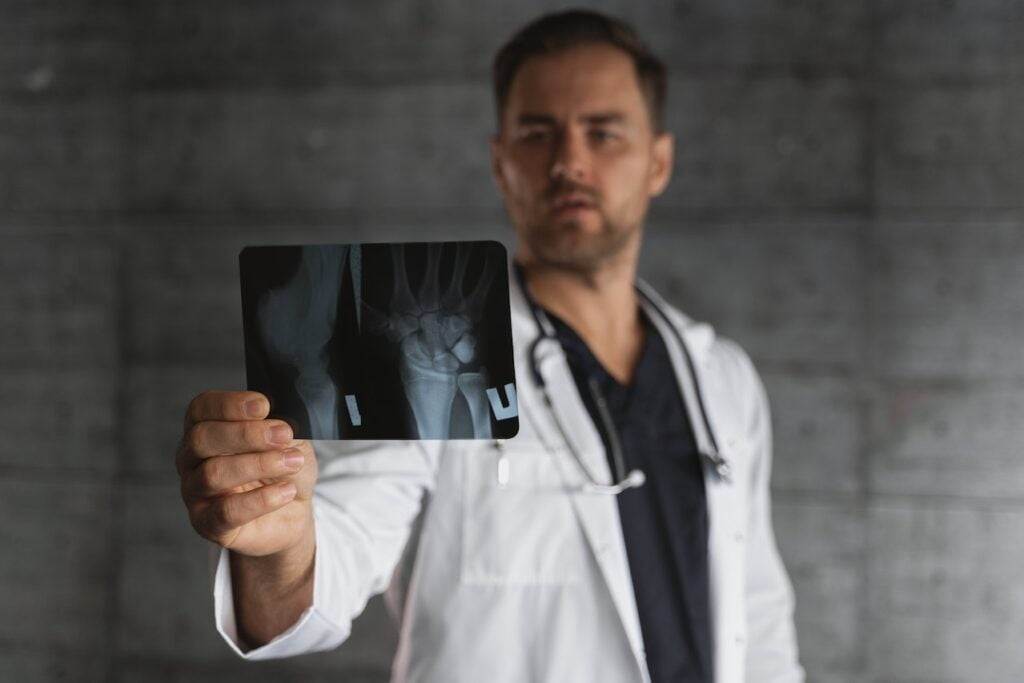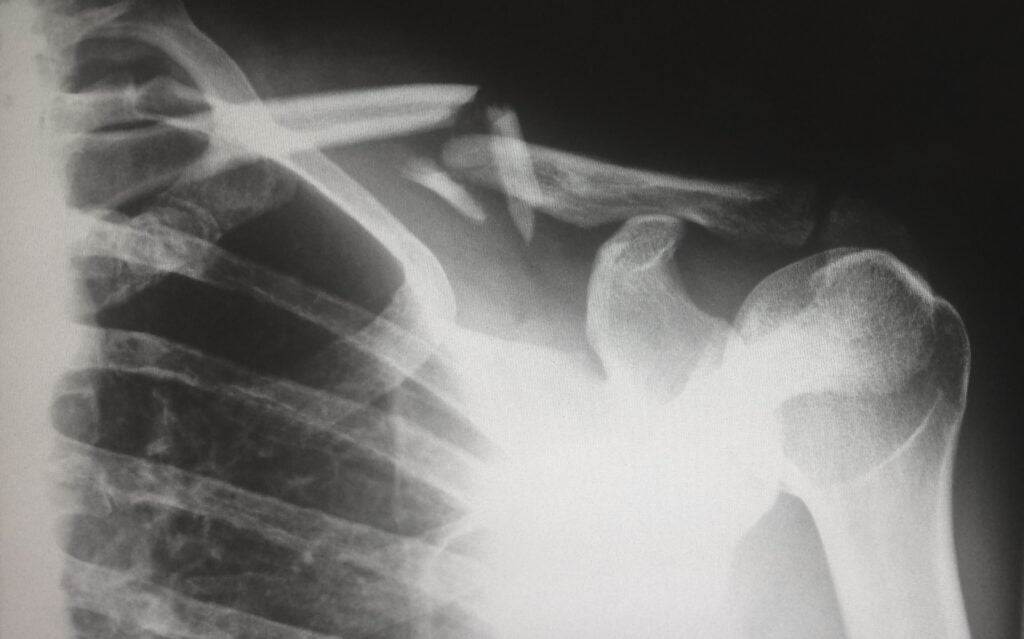It’s crucial to have strong and healthy bones to live a content and active life. Bones are the base of our body and give support, movement, and safeguard our organs. However, not many people are aware that it takes more than just drinking milk or taking calcium supplements to maintain bone health. One of the vital nutrients for solid bones is Vitamin D.
Table of Contents
The Importance of Vitamin D for Bone Health
Vitamin D is essential for keeping bones strong and healthy. It helps the body absorb calcium and phosphorus, which are necessary for bone growth. Without enough Vitamin D, our bodies can’t absorb the calcium needed for bones to be strong, resulting in weak and fragile bones.
Aside from supporting bone health, Vitamin D also promotes general health and wellbeing. It helps regulate the immune system, reduces inflammation, and improves muscle function. Vitamin D is also essential for the creation of insulin and other hormones that manage bodily functions.
Sources of Vitamin D
Vitamin D is best obtained by sun exposure. Exposure of the skin to sunlight results in the production and absorption of vitamin D by the body. But, depending on where you live and the time of year, getting enough sunshine might be challenging. The importance of supplementing your diet with vitamin D from other sources cannot be overstated.
Vitamin D-rich meals include egg yolks, cheese, and fatty fish like salmon, tuna, and mackerel. Milk, orange juice, and cereal are examples of fortified foods that include vitamin.
Potential Risks of Deficiency
A lack of vitamin D is a frequent condition that can result in various health problems.
- Increased risk of osteoporosis and fractures
- Increased risk of falls and fractures in older adults
- Increased risk of chronic diseases, such as diabetes, cardiovascular disease, and certain types of cancer

The Consequences of Vitamin D Deficiency
An increased risk of:
- Osteoporosis and fractures
- Falls and fractures in older adults
- Chronic diseases such as diabetes, cardiovascular disease, and certain types of cancer
The Role of Vitamin D in Bone Health
Vitamin D plays a vital role in bone health by helping the body absorb calcium. Without adequate Vitamin D, the body cannot absorb calcium effectively, leading to weakened bones and an increased risk of osteoporosis and fractures.
The Link Between Vitamin D Deficiency and Falls in Older Adults
Vitamin D is also essential for muscle function, balance, and coordination, all of which are important factors in preventing falls. Studies have shown that individuals with low levels of Vitamin D have a higher risk of falls and fractures, particularly in older adults.
The Role of Vitamin D in Chronic Disease Prevention
Low levels of vitamin D are linked to an increased risk of developing diabetes, cardiovascular disease, and certain forms of cancer; vitamin D is also important in regulating the immune system. Although the exact mechanism by which Vitamin D protects against various illnesses remains unclear, it is clear that sufficient quantities of this vitamin are necessary for good health.
How to Avoid Vitamin D Deficiency
To avoid Vitamin D deficiency, it’s important to ensure that you are getting enough Vitamin D through sunlight exposure, diet, or supplements.
- Exposure to sunlight: time spent in the sun may aid in the production of vitamin D in the body. Keep in mind your skin type and the time of day when deciding how long to spend in the sun without protection.
- In addition to sun exposure, vitamin D may be gained from a healthy diet that includes fatty fish, egg yolks, and fortified foods. Vitamin D is essential for health, but it may be challenging to acquire enough of it through food alone.
- If you aren’t receiving enough vitamin D from natural sources like sunshine and food, you may want to consider taking a supplement. The right dose for you can only be determined by you and your doctor.
Recommended Intake
The amount of vitamin D you should take in every day depends on your age, as well as other variables including your skin tone, how much time you spend in the sun, and what you eat. Most individuals need between 600 and 800 international units (IU) of vitamin D daily, as stated by the National Institutes of Health. Infants, toddlers, and adolescents, as well as individuals over the age of 70, may need greater dosages.
- Infants: Babies need 400–1000 IU of vitamin D per day, which may be found in breast milk, formula, or supplements.
- Children and adolescents: To maintain healthy bones and teeth, children and adolescents need 600-1000 IU of vitamin D daily. You may get this via consuming fatty fish, fortified meals, or dietary supplements.
- Adults over the age of 70: Those over the age of 70 need 800–1000 IU of vitamin D each day. This is because fewer people are getting enough Vitamin D in their diets, and because of a decline in the capacity to manufacture Vitamin D from sunshine.
Factors Affecting Vitamin D Needs
It’s important to keep in mind that some individuals, due to their health or the medications they take, may need far higher vitamin D dosages than others. Those who suffer from malabsorption disorders like celiac disease or Crohn’s disease may benefit from vitamin D supplements. Vitamin D metabolism is altered by anticonvulsants, corticosteroids, and numerous weight-loss medications, therefore these individuals may need higher than normal dosing.
One’s vitamin D needs might change based on skin type. Those with darker skin tones need more sun exposure time than individuals with lighter skin to generate the same amount of vitamin D. Those who dwell in northern latitudes or poor sun exposure areas may need higher Vitamin D prescriptions.

The potential risks and side effects of overconsumption of Vitamin D
Potential risks of Vitamin D overconsumption:
- Hypercalcemia (high blood calcium levels) occurs when the body absorbs too much calcium from the food, as might happen with excessive vitamin D use. Symptoms of this include nausea, vomiting, constipation, disorientation, and even renal damage.
Upper limit of Vitamin D intake:
- Most individuals shouldn’t consume more than 4000 IU of vitamin D per day.
- If you want to avoid health problems, it’s crucial that you don’t take more of it than is suggested.
Populations at higher risk of Vitamin D overconsumption:
- Supplementing with large amounts of Vitamin D3 might be dangerous for those who do not have medical supervision.
- Those who regularly take vitamin D-fortified foods, such as milk and cereal, are less likely to develop rickets.
- Those with diseases that interfere with vitamin D metabolism, include renal disease and sarcoidosis.
Potential side effects of Vitamin D overconsumption
- Nausea
- Vomiting
- Loss of appetite
- Constipation
- Dehydration
- Fatigue
- Irritability
- Confusion
- Muscle weakness
- High blood pressure
If you have a medical problem or are taking any drugs, you should talk to your doctor before using Vitamin-d supplements. Certain drugs may not work as well if used with vitamin D supplements, and vice versa.
Potential interactions between Vitamin D and other medications or supplements
Medications that can interact with Vitamin D
- Prednisone and other steroid medications might decrease the body’s ability to absorb and benefit from vitamin D.
- Orlistat, one of the most popular diet pills on the market, inhibits the body’s absorption of vitamin D and other fat-soluble nutrients.
- Anticonvulsants, like phenytoin and phenobarbital, may hasten Vitamin D’s breakdown in the liver, lowering the vitamin’s efficacy.
- Drugs that decrease cholesterol, such as cholestyramine, might inhibit the body’s ability to absorb vitamin D and other fat-soluble nutrients.
- Oil from minerals may interfere with the body’s ability to absorb fat-soluble nutrients like vitamin D.
Supplements that can interact with Vitamin D
- Vitamin D toxicity may occur when calcium supplementation is combined with high vitamin D intake.
- Vitamin D absorption and efficacy may be improved by taking magnesium supplements.
- Vitamin A supplements: Taking too many Vitamin A pills might decrease your body’s ability to absorb and use Vitamin D.
Herbal supplements that can interact with Vitamin D
- The use of St. John’s wort, which increases Vitamin D breakdown in the liver, might lessen the benefits of this nutrient.
- For example, Ginkgo biloba may prevent the body from absorbing Vitamin D, reducing the vitamin’s efficacy.
If you are using any drugs or supplements, especially those that may interact with Vitamin D, it is essential that you discuss this with your healthcare practitioner prior to beginning treatment. Adjusting the dose of a medicine or supplement may be necessary to avoid negative drug interactions and get the best possible health results.

Alternative sources of Vitamin D
Supplements with vitamin D
Vitamin D 2 (ergocalciferol) and Vitamin D3 are the two most common types of vitamin D supplements sold in health food stores and pharmacies, respectively (cholecalciferol). The most efficient way to increase vitamin D levels in the blood is with vitamin D3, thus that’s the one that’s recommended. Capsules, pills, and even gummy dietary supplements exist.
Fortified foods
Milk, orange juice, cereal, and yogurt are just a few examples of foods that have been enhanced with Vitamin D. It is essential to check the label to make sure the product is supplemented with Vitamin D3, since some products may include Vitamin D2, which is less efficient at increasing blood levels of Vitamin D.
UV lamps
The skin may produce more vitamin D by exposing itself to UV radiation, which can be simulated using lamps. But, take care to avoid unnecessary exposure to UV light by carefully following the manufacturer’s recommendations.
Tanning beds
As an alternative to natural sunshine, tanning beds may be used to stimulate the body’s natural production of vitamin D. In contrast, the American Academy of Dermatology cautions against tanning beds owing to the elevated risk of skin cancer and other health problems.
Mushrooms
When exposed to UV light, several types of mushrooms, including shiitake and portobello, can produce vitamin D. Unfortunately, mushrooms often contain very little vitamin D and may not be enough to meet your daily needs.
Before using UV lamps or sunbeds, it’s important to speak to a healthcare professional to make sure they are safe and suitable for your individual needs. It’s also important to stick to the recommended daily allowance and not exceed the daily maximum of 4000 IU for most people.
In conclusion, vitamin D tablets and fortified foods can help those who don’t get enough of the nutrient from the sun or their diet. You can also get a tan by using ultraviolet (UV) lamps or sunbeds, but these should only be used under strict medical supervision.

Other nutrients and factors in maintaining bone health
Calcium
- Strong bones can’t be built or kept in good condition without calcium.
- Recommended daily allowances of calcium range from 1000–1300 mg, depending on age and gender.
- Dairy products, plant-based milk with calcium added, dark green vegetables, and calcium-fortified meals are all good places to acquire your daily dose of calcium.
- The consumption of calcium alone is insufficient for sustaining bone health; additional minerals, such as Vitamin D and magnesium, and frequent physical exercise are also necessary.
Magnesium
- Bone growth is aided by magnesium, and the mineral may also aid in maintaining healthy calcium levels.
- Magnesium needs vary from one to person, but generally fall between 310 and 420 milligrams daily.
- Nuts, seeds, whole grains, green vegetables, and beans are all excellent food sources of magnesium.
Taking Vitamin K
- Vitamin K plays a crucial role in calcium homeostasis, making it an essential nutrient for strong bones.
- Vitamin K RDAs range from 90 mcg to 120 mcg per day, depending on age and gender.
- Vegetables like kale, spinach, and broccoli are rich in vitamin K and other nutrients.
Doing something active
- Maintaining bone density and lowering osteoporosis risk may be accomplished with regular weight-bearing and resistance activities.
- Activities like walking, jogging, dancing, and hiking are examples of weight-bearing exercises.
- Lifting weights and using resistance bands are examples of resistance exercises.
- Exercises of moderate intensity for at least 150 minutes per week and weight training on at least two days per week are suggested.
The influence of your way of life
- Bone loss and osteoporosis are risks exacerbated by smoking, heavy alcohol intake, and a diet rich in salt and deficient in minerals.
- It’s important to take care of one’s health by doing things like eating well, getting enough of exercise, and not smoking or drinking too much alcohol.
A combination of various nutrients, regular physical activity, and a healthy lifestyle is necessary to maintain bone health. The recommended daily intake guidelines for calcium, magnesium, and Vitamin K should be followed. In addition, weight-bearing and resistance exercises should be done regularly. Furthermore, harmful lifestyle.
Conclusion
It is vital to have strong and healthy bones to live a content and active life. Vitamin D is necessary for bone health and overall wellbeing. Getting Vitamin D through sunlight, food, or supplements can help prevent a deficiency and maintain optimal health.
A well-rounded approach to nutrition and exercise, including essential vitamins and minerals, is key to maintaining bone health and overall wellness. For example, Vitamin D is crucial for preventing chronic health conditions and living a healthy lifestyle. By understanding the importance of Vitamin D in maintaining bone health, you can take proactive steps to support your wellbeing and enjoy an active and fulfilling life.

